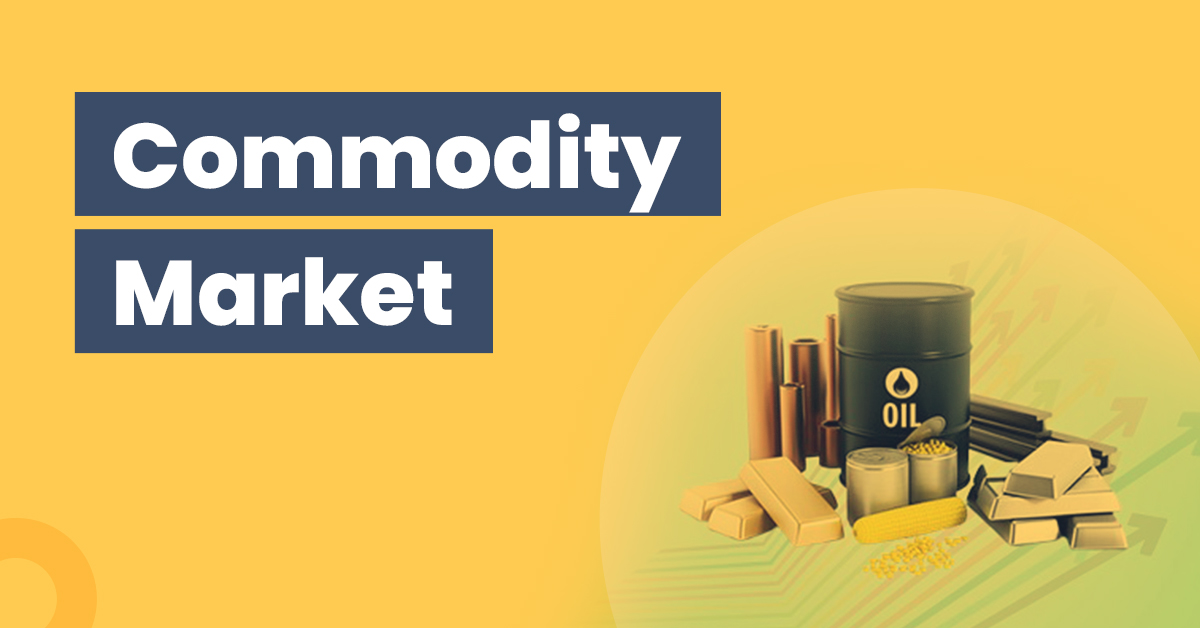Suppose you were playing two different games: one is soccer and the
other is basketball. Both involve a ball but score differently, have different
rules, strategies, and gameplay. That is the difference between commodities
trading and stock trading. While both can be profitable, both are approached,
risked, and rewarded in fairly different ways. In this article, we shall break
down what comprises the differences between commodities trading and stock
trading like comparing two different games.
What is commodities trading?
Commodities trading is kind of like playing a fast game, where the
"ball" would be some unprocessed material or resource-like oil, gold,
wheat, or coffee. Commodities trading is essentially a bet on the change in the
prices of these raw materials over time. Commodities also are sorted primarily
into two categories:
Hard
Commodities: These are natural resources including oil, gold, and metals.
Soft Commodities: These are agricultural products, such as coffee, cotton, and
wheat.
Similar to
a sport, if you are a football player, you should be able to predict when it is
the best time to strike and react fast. The commodities trader needs his eye on
the horizon for some incoming storm clouds, which may arise in terms of weather
conditions, changes in demand and supply, or even geopolitical events that
bring about price movement. It is just a fast game where one could become
successful by predicting in which direction the market is going.
What Is
Stock Trading?
Stock
trading, on the other hand, is akin to playing basketball, with emphasis on
buying and selling shares of a company. If you purchase stocks, then you are
essentially buying a tiny part of a business. It simply means the price of the
stock, which generally communicates what investors feel about prospects related
to the future performance or earnings by the company and how it is being
managed as well as the appearance of the condition of the market.
The stock
trader studies the financial condition of the company, follows the trends of a
particular industry, and observes overall market sentiment.It’s more about
evaluating the growth potential of the company, and in turn, the value of your
shares. The market can be volatile, but in stock trading, you’re usually
dealing with more long-term trends than short-term fluctuations, unlike the
fast-paced nature of commodities trading.
Key
Commodities vs Stock Trading Differences
1. Asset
Type
The most obvious
difference is that the commodity that you are trading in is of a different
nature. Commodity trading deals with real things or resources. Real events in
the physical world, such as crop failures, natural disasters, or geopolitical
wars, may affect those assets. For stock trading, which specializes in company
shares, investor sentiment, market conditions, and what the companies in whose
stocks you are trading in do influence it.
2. Impact
on the Market
Their
nature, by itself, makes commodities vulnerable to shifting quickly due to
weather-related catastrophes, supply disruptions, and changes in government
policies. Results announcements are increasingly often associated with the
stock prices of companies.
3.
Leverage
Commodities trading often allows for higher leverage than does stock
trading. That means you can control a bigger position with less capital
required upfront. While this often means bigger profits, it also amplifies the
risks-in baseball, this is like a fast-break attempt that can result in a
turnover.
4. Trading
Hours
Commodities markets are almost open 24/7 because commodities are traded
worldwide. Stock markets, on the other hand, tend to trade under some sort of
fixed hours of trading, like 9:30 AM to 4:00 PM in the U.S.
So, What
Is Right for You? Both markets give you a way to profit, but the strategy,
timing, and risk differ. If you like quick, actionable decisions, react to
global events, and are willing to take on more risk, then Commodities trading is the game for you.Now, if you enjoy a bit more structured approach over
the long haul, maybe stock trading is the game for you. Both are rewarding, but
at the end of the day, it's your style, your goals, and your ability to take a
risk. Whether commodities or stocks, the game is all about mastering it.







No comments:
Post a Comment